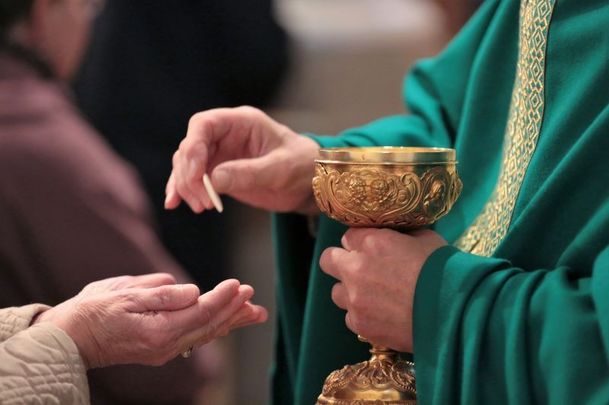It's not just Michael Duignan’s name that I like.
Nor that Duignan was born in Roscommon, where my grandfather’s family came from, before he and his dozen siblings moved on to Widnes, outside of Liverpool, then New York.
Earlier this month, Duignan, the new bishop of Galway, “spoke with disarming frankness,” as The Irish Times’ Patsy McGarry put it, about challenges that Catholics on both sides of the Atlantic can understand.
Such an approach is refreshing, what with Irish American bishops like Thomas Daly of Spokane cheering alongside other church leaders at the news that San Francisco Archbishop Salvatore Cordileone plans to deny communion to Speaker of the House Nancy Pelosi.
I fully support Archbishop Cordileone. No bishop enjoys making these decisions but we are all bound to teach the truth with love, compassion and without compromise.
— Bishop Thomas Daly (@Bishop_Daly) May 21, 2022
What would be nice to see, especially from those gleefully cheering, is a little understanding that human beings are imperfect and can use some leeway from time to time.
Lord knows, many within the church –with sins of commission and omission –have shown themselves to be imperfect.
And yet the likes of Cordileone and Daly want to hurl rocks in the name of defending an institution that is one enormous house of glass.
Duignan at least seems to understand this is the problem, not the solution.
“We can no longer ignore the fact that much of what the church has built up in Ireland over the last two centuries is crumbling,” he said.
McGarry adds, “Bishop Duignan’s decision to acknowledge reality so publicly and with no pieties attached is an increasingly common pattern among Ireland’s younger Catholic bishops, dealing, as they now are, with a Church after The Fall.”
Others, though, feel it is Pelosi, and Joe Biden, who are responsible for the church’s tumbles.
Enough, they say, ignoring the rules. Enough looking the other way on abortion.
Okay. But it seems Duignan’s point is that the church has squandered whatever moral authority it might have once had by ignoring rules and looking the other way on so many gruesome matters.
So let’s, instead, revisit a different episode that church officials in Ireland and the US dealt with terribly.
“Duignan’s predecessor, Eamonn Casey, came to grief 30 years ago after it emerged he had fathered a son, Peter, with American Annie Murphy,” McGarry reminds us.
“The resignation in disgrace of Casey…was a pivotal moment. Little was believable before. Everything seemed believable afterwards.”
The Casey-Murphy mess is revisited in Fintan O’Toole’s excellent new book "We Don’t Know Ourselves: A Personal History of Modern Ireland."
O’Toole recalls that the Casey affair was as financially shocking as it was morally repugnant.
“This $117,000 (settlement money) came from the funds of the Galway diocese and was transferred via an escrow account in New York to Murphy in Connecticut. The negotiations were handled by a priest in Brooklyn, Monsignor James Kelly, who was also a lawyer,” O’Toole wrote.
None of which sounds like the kinds of things a man or woman of God should be spending their days doing.
How much time was spent pondering the denial of sacraments to others within the church, who shuffled money and paperwork about to conceal sexual secrets and physical abuse?
Given all that, maybe now would be a good time to build, rather than burn, bridges. Especially with the likes of Pelosi and Biden, who actually take their Catholicism seriously, even if many in their own party do not.
Which, in the wake of the Casey-Murphy scandal, and other terrible revelations that followed, was understandable.
“What really changed,” according to O’Toole, was that “ordinary Catholics realized that, when it came to lived morality, they were way ahead of their teachers.”
And still seem to be.
Yeats once wrote, “That is no country for old men.”
And of “the young In one another's arms,” and of “dying generations.”
If those cheering the Pelosi ban want a smaller, more strict church, they’re going to get it. But it will be a church for “the dying,” not “the young,” in Ireland and the US.
(On Twitter: @TomDeignan)
*This column first appeared in the May 25 edition of the weekly Irish Voice newspaper, sister publication to IrishCentral.




Comments